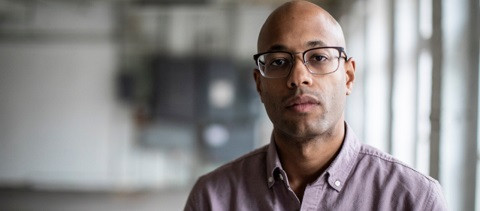
GCED Basic Search Form
Quick Search
You are here
News

Aly Ndiaye, alias Webster, is a veteran of the Quebec hip-hop scene. Active since 1995, he now travels the world through his concerts, writing workshops and conferences. Passionate about history, the rapper from Limoilou has been particularly interested in slavery and the black presence in Quebec and Canada since the time of New France.
Why has the COVID-19 pandemic fuelled many acts and messages of hatred?
The overlap between a disaster, its place of outbreak and the perception of different cultural habits was sufficient to give free rein to racism. If we add to this the fear for many people of the emergence of certain countries such as the next world superpowers, it did not take more for people, in the media, and on the web, to slip into rhetoric racists of the “Yellow Peril” of past centuries.
While countries faced racism, citizens gave in to the fear of the foreigner as the accelerator of this pandemic. We have witnessed the differential and anti-black treatment given to African and Afro-descendant people in restaurants, hotels and properties in certain cities.
In the UNESCO webinar on “Confronting the heritage of slavery together: racism” on May 28, you said “It is not the races that created racism, but racism that created the races” (tdlr). In light of these words, how would you analyze the manifestations of hatred against "the other" in our current context?
This hatred is rooted in a relatively recent historical concept; it was not until the 18th century, the Age of Enlightenment, that the notion of race was theorized. Thus, through a categorization, essentialization, and hierarchization of human beings according to their pigmentation, European thinkers, philosophers and theorists have constructed a perception of the "Other" that still prevails today. This purely ideological construction gave an appearance of intellectual legitimacy to slavery and the colonial enterprises of the last centuries. As the modern world is a result of these past colonial dynamics, the racial biases inseparable from these endeavors have continued to color minds throughout the 20th century. Of course, we have begun, as humans, to shed some of these habits and mentalities, but the social and political impacts of the racist thinking that prevailed for centuries remain very real.
In your opinion, as a hip-hop artist, writer, historian and lecturer, how can essential history lessons on slavery and racism be conveyed to today's youth?
I feel that in order to transmit notions of history and combat racism, we need to go beyond the usual academic framework. The latter is, of course, important (we need only think of the fact that slavery and the Afro-descendant presence in Quebec and Canada are subjects that are little discussed or have even been completely expunged from the learning of history in this country), but I do not believe that it is sufficient to facilitate the understanding of certain concepts or their perpetuation in the collective consciousness and unconsciousness.
The arts, however, play a vital role in the transmission of knowledge and its retention in all segments of society. Thus, music, books, visual arts, or cinema are essential vectors for a better understanding of these issues, be they social, political, or historical.

© Ludvig Germain Auclair
What message can you give to young people around the world who want to take action against racism and discrimination? What means are at their disposal?
Everyone can make a difference from where they are in society, regardless of their age. As individuals, we are all part of this great whole and we all have a role to play; each brick has its importance in the building. For example, a person may decide to get involved in a local organization or just organize with a few friends to help bring about change. You can decide to make informative clips, humorous videos, theme songs, or simply go out and vote. The important thing is to understand that these are not dynamics that are beyond us, they concern all of us as individuals. For example, a person can contribute by taking a stand when they witness racist words or actions and make a difference in their classroom, school or neighborhood. Taking the time to educate oneself and take an interest in these dynamics is already a gesture towards change. This presupposes above all a serious reflection on oneself and on one's attitudes towards the "Other" whom one presents as different.
See also
- Inclusion in the Time of COVID-19: Confronting slavery’s legacy of racism together
- UN info: Racism is a scourge that exists in all societies (in French)
- Podcast: Inclusion in the Time of COVID-19: Confronting slavery’s legacy of racism together (in French)
- Racism, the legacy of slavery that we must confront together (in French)
- Watch a full video / a video clip of the interview
***
Aly Ndiaye, alias Webster, is the author of a hip-hop writing textbook, À l'Ombre des Feuilles (Quebec America, 2019), of a children's book about Olivier Le Jeune, the first African slave in Canada, Le Grain de Sable (Septentrion, 2019), and a booklet “Slavery in Canada” (Canadian Commission for UNESCO, June 2020)
URL:
https://en.unesco.org/news/take-action-against-racism-and-discrimination-interview-webster
